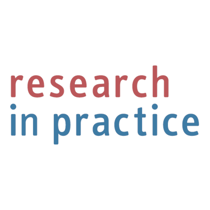How can we use a radical safeguarding approach to challenge structural inequalities? An open access toolkit offers a new approach to safeguarding adults experiencing homelessness and disadvantage.
Rooted in social justice movements, radical safeguarding is an approach that the notices gaps, inequalities and injustices in services and takes steps to change them. Use the toolkit to explore the principles of radical safeguarding and how this approach can help find potential opportunities to improve equity in adult safeguarding.
Created by a group of people and practitioners with lived experience of homelessness, institutional detention and/or social care the toolkit is inspired by the pioneering work of Maslaha. Working predominantly with Muslim communities, Maslaha takes a multi-layered and creative approach to challenge systems of inequality.
The co-produced toolkit shares information, ideas, exercises and inspiration for anti-oppressive approaches to safeguarding adults experiencing homelessness. The resource aims to activate critical reflection about traditional ways of working in homelessness and social care, offering an accessible, interesting and reflective approach to explore radical principles and anti-oppressive practice.
A new podcast also explores the concept of radical safeguarding in the context of homelessness, and the background of social justice movements for this work.
The resources invite practitioners to consider the role of solidarity, autonomy, power and accountability in their work.
Radical safeguarding toolkit for homelessness
A co-produced toolkit shares information, ideas and inspiration for anti-oppressive approaches to safeguarding adults experiencing homelessness.
Introducing the radical safeguarding toolkit for homelessness: Podcast
This podcast introduces the new open access radical safeguarding toolkit for homelessness. The conversation explains the concept of radical safeguarding, sets out the background of social justice movements and explores how principles of power, solidarity, autonomy and accountability apply to adult safeguarding.
Using professional curiosity to support people experiencing homelessness
Taking a radical approach to safeguarding requires us to carefully reflect on an individual’s experiences and critically consider the wider context for safeguarding, including experiences of and responses to social inequalities and injustice.
A new blog explores how hidden disabilities and differences, including brain injuries and trauma, can influence executive function in the lives of people experiencing street homelessness ahead of an upcoming webinar.
The capacity to act: Considering hidden disabilities and differences
A webinar on 12 June webinar will explore executive function in the lives of people experiencing street homelessness and multiple disadvantage.
Opening doors for people with hidden disabilities and differences
In a new blog, Ellie Atkins outlines how professional curiosity can help us to understand and identify executive dysfunction in the lives of people experiencing street homelessness.




